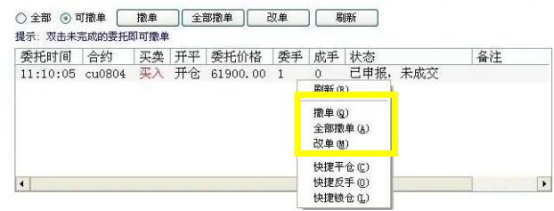主页 > imtoken苹果版下载 > 比特币地址生成全步骤(golang实现)
比特币地址生成全步骤(golang实现)
imtoken苹果版下载 2023-11-25 05:13:19
通过椭圆曲线算法生成公钥。 对公钥进行sha256 hash和ripemd160 hash得到publickeyHash。 在publickeyHash前面加上version(版本)字节数组比特币地址怎么获取,得到versionPublickeyHash,对versionPublickeyHash进行两次sha256 hash,取前4个字节。 ,得到tailfHash,将tailfHash拼接成versionPublickeyHash,得到公钥的最终Hash,即finalHash比特币地址怎么获取,最后用Base58(一种可视化工具)对finalHash进行编码,得到比特币地址
曾经有一个疑问,为比特币生成地址为什么这么麻烦? 既然非对称加密只有公钥,私钥不可逆,那为什么不直接用公钥作为地址,而是将公钥多次哈希得到地址呢,看了一篇文章才明白最近。 文章提到量子计算机可以破解椭圆曲线加密,他可以通过公钥快速找到私钥信息。 但是量子计算机很难逆向Hash算法(或者破解Hash需要步数的2的80次方),所以你的比特币放在一个未支付的地址(根据UTXO交易模型,输出为公钥Hash而不是公钥,这也解释了为什么UTXO输入存储公钥,输出存储公钥Hash)是相当安全的。 也就是说,已经花费过的地址在量子计算机面前是不安全的,而没有花费过的地址具有很强的量子抗性。
在此处插入图像描述
代码:
package main
import (
"bytes"
"math/big"
)
var b58Alphabet = []byte("123456789ABCDEFGHJKLMNPQRSTUVWXYZabcdefghijkmnopqrstuvwxyz")
func Base58Encode(input []byte) []byte {
var result []byte
x := big.NewInt(0).SetBytes(input)
base := big.NewInt(int64(len(b58Alphabet)))
zero := big.NewInt(0)
mod := &big.Int{}
for x.Cmp(zero) != 0 {
x.DivMod(x, base, mod)
result = append(result, b58Alphabet[mod.Int64()])
}
ReverseBytes(result)
for _, b := range input {
if b == 0x00 {
result = append([]byte{b58Alphabet[0]}, result...)
} else {
break
}
}
return result
}
func Base58Decode(input []byte) []byte {
result := big.NewInt(0)
zeroBytes := 0
for _, b := range input {
if b != b58Alphabet[0] {
break
}
zeroBytes++
}
payload := input[zeroBytes:]
for _, b := range payload {
charIndex := bytes.IndexByte(b58Alphabet, b)
result.Mul(result, big.NewInt(int64(len(b58Alphabet))))
result.Add(result, big.NewInt(int64(charIndex)))
}
decoded := result.Bytes()
decoded = append(bytes.Repeat([]byte{byte(0x00)}, zeroBytes), decoded...)
return decoded
}
func ReverseBytes(data []byte) {
for i, j := 0, len(data)-1; i < j; i, j = i+1, j-1 {
data[i], data[j] = data[j], data[i]
}
}
package main
import (
"bytes"
"crypto/ecdsa"
"crypto/elliptic"
"crypto/rand"
"crypto/sha256"
"fmt"
"golang.org/x/crypto/ripemd160"
"log"
)
const VERSION = byte(0x00)
const CHECKSUM_LENGTH = 4
type BitcoinKeys struct {
PrivateKey *ecdsa.PrivateKey
PublicKey []byte
}
func GetBitcoinKeys() *BitcoinKeys {
b := &BitcoinKeys{nil, nil}
b.newKeyPair()
return b
}
func (b *BitcoinKeys) newKeyPair() {
curve := elliptic.P256()
var err error
b.PrivateKey, err = ecdsa.GenerateKey(curve, rand.Reader)
if err != nil {
log.Panic(err)
}
b.PublicKey = append(b.PrivateKey.PublicKey.X.Bytes(), b.PrivateKey.PublicKey.Y.Bytes()...)
}
//获取地址
func (b *BitcoinKeys) GetAddress() []byte {
//1.ripemd160(sha256(publickey))
ripPubKey := GeneratePublicKeyHash(b.PublicKey)
//2.最前面添加一个字节的版本信息获得 versionPublickeyHash
versionPublickeyHash := append([]byte{VERSION}, ripPubKey[:]...)
//3.sha256(sha256(versionPublickeyHash)) 取最后四个字节的值
tailHash := CheckSumHash(versionPublickeyHash)
//4.拼接最终hash versionPublickeyHash + checksumHash
finalHash := append(versionPublickeyHash, tailHash...)
//进行base58加密
address := Base58Encode(finalHash)
return address
}
func GeneratePublicKeyHash(publicKey []byte) []byte {
sha256PubKey := sha256.Sum256(publicKey)
r := ripemd160.New()
r.Write(sha256PubKey[:])
ripPubKey := r.Sum(nil)
return ripPubKey
}
//通过地址获得公钥
func GetPublicKeyHashFromAddress(address string) []byte {
addressBytes := []byte(address)
fullHash := Base58Decode(addressBytes)
publicKeyHash := fullHash[1 : len(fullHash)-CHECKSUM_LENGTH]
return publicKeyHash
}
func CheckSumHash(versionPublickeyHash []byte) []byte {
versionPublickeyHashSha1 := sha256.Sum256(versionPublickeyHash)
versionPublickeyHashSha2 := sha256.Sum256(versionPublickeyHashSha1[:])
tailHash := versionPublickeyHashSha2[:CHECKSUM_LENGTH]
return tailHash
}
//检测比特币地址是否有效
func IsVaildBitcoinAddress(address string) bool {
adddressByte := []byte(address)
fullHash := Base58Decode(adddressByte)
if len(fullHash) != 25 {
return false
}
prefixHash := fullHash[:len(fullHash)-CHECKSUM_LENGTH]
tailHash := fullHash[len(fullHash)-CHECKSUM_LENGTH:]
tailHash2 := CheckSumHash(prefixHash)
if bytes.Compare(tailHash, tailHash2[:]) == 0 {
return true
} else {
return false
}
}
func main() {
keys := GetBitcoinKeys()
bitcoinAddress := keys.GetAddress()
fmt.Println("比特币地址:", string(bitcoinAddress))
fmt.Printf("比特币地址是否有效:%v\n:", IsVaildBitcoinAddress(string(bitcoinAddress)))
}
运行结果:
比特币地址: 1BeDkWNHxvVc8DmpLVpFRPUngPmG7uCRHJ
比特币地址是否有效:true




